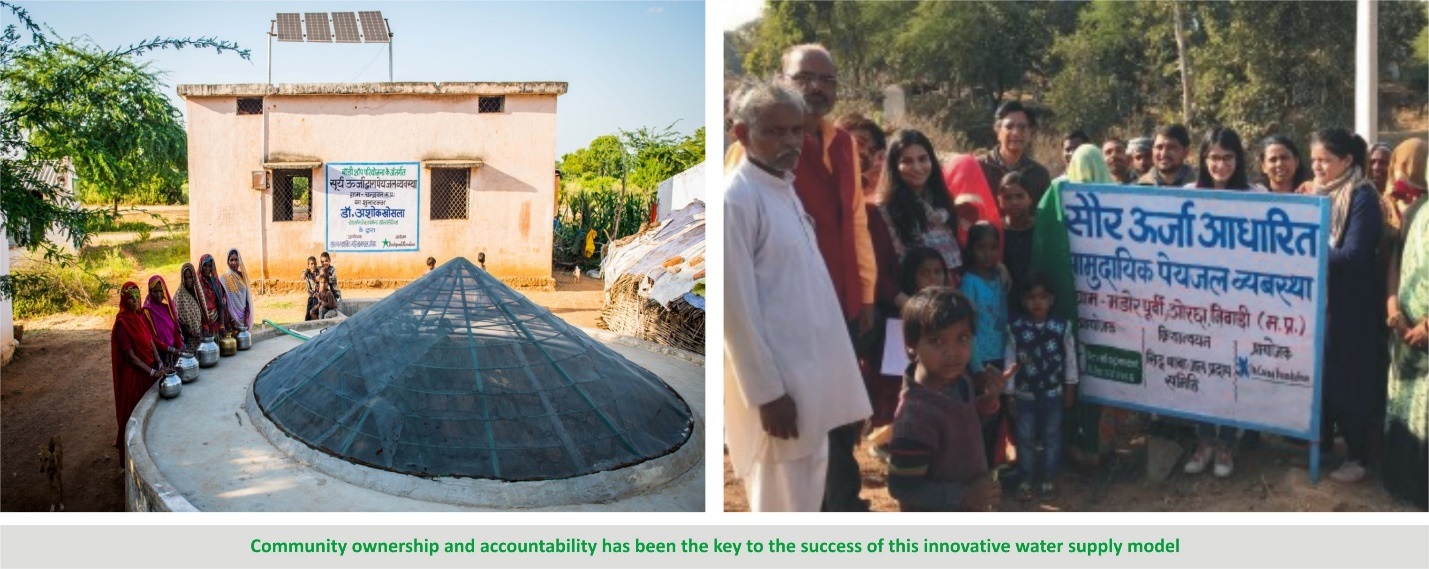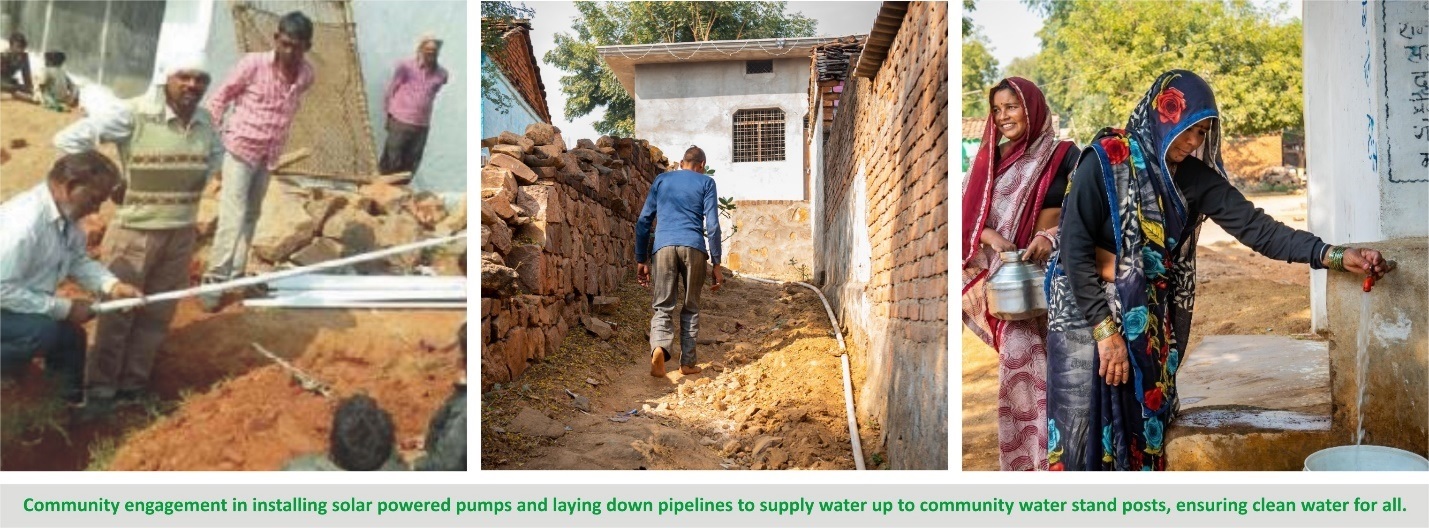Madore is a remote village in hilly terrain of Niwari district of Bundelkhand in Madhya Pradesh. It faces acute water shortage because it lacks the appropriate infrastructure to carry water to high altitudes. A large number of people in this region still suffer the burden of water scarcity. Since 2018, a technological implementation with support from the Department of Science and Technology (DST) has improved water supply in this village, eliminating the drudgery in the lives of women, who used to earlier walk daily for three kilometers to fetch water.
With the initiative of Development Alternatives, one of the Core Groups under SEED Division of DST, a Community Owned and Community Operated (COCO) water supply system has been installed in the Ahirwar hamlet of this village which is home to 39 families. This example of implementation of the COCO model is part of a larger initiative to introduce the alternative self-sustaining model for the delivery of safe drinking water and lighting solutions powered by renewable energy.
The alternative model relies largely on local, bottom-up planning with local institutional arrangements. The aim is to assist communities in their access to basic services, generate livelihoods, and to take leadership in designing their own futures.
The COCO model is based on action led by communities, creating a sense of community ownership of services and accountability. Together, these principles make it a sustainable model and ensure equitable distribution of basic services and positive outcomes on sanitation, health and income.
This self-sustaining COCO water supply system comprises of two Horse Power solar powered pumps and pipelines to supply water up to community water stand posts. Safe water is drawn from a water source by a solar powered motor and then carried by a pipeline to a high water tank from where the water goes to these community water stand-posts.

There are no running costs, or fuel costs and the system is not dependent on the power supply which is often erratic in the region. The use of solar pumps also minimizes carbon footprint.
This is a pay-for-use model and can be used for household connections for regular water supply. The community stand-post taps are connected for use by three households per stand-post, whose maintenance and operation are charged at the rate of INR 50 – 100 per month. Village level Jal Pradai Samiti is in charge of operation and maintenance of the system. It supplies water not only to the hamlet but also to the entire village. To ensure the buy-in and ownership from the community for sustainability, each household agreed to contribute INR 1,000 to create a common pool of funds for construction. The committee monitoring this model meets monthly and takes collective decisions on spending funds from the maintenance fund – making it a true community-owned and community-operated model.

Taking a leaf out of this example, five other villages - Pipra, Govindnagar, Mazra, PunwaliKalan and Chandraban of Bundelkhand, are providing doorstep service for reliable drinking water to over 600 families by implementing this model. Some villages of Sonbhadra district of Uttar Pradesh are also replicating the COCO model. The technological intervention has led to improved quality of life by building local capacities and has also generated livelihoods in these villages.






























